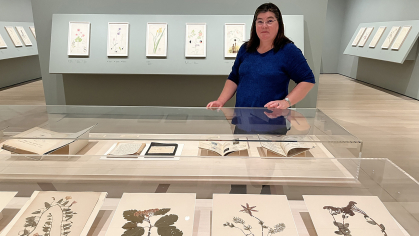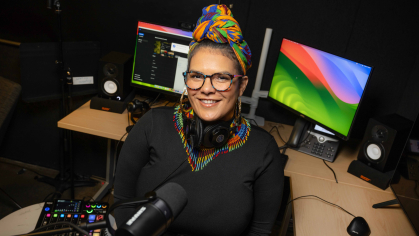Why We Should Care More About Others
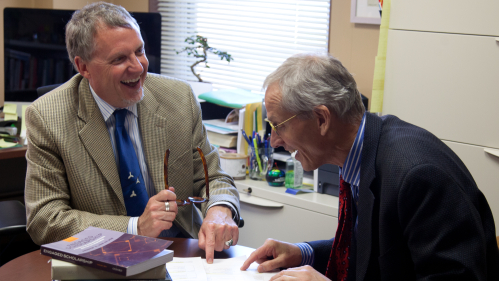
Social work professors launch project to encourage a caring society
Do we care about anyone more than ourselves? The COVID-19 pandemic seems to indicate that while some – like the health care workers on the front lines – do, many others don’t.
After seeing many failures in caring about what happens to others during the coronavirus outbreak, two Rutgers professors from the School of Social Work are trying to understand why this is occurring and whether we as a society can flip the switch and make caring both personally and societally the norm.
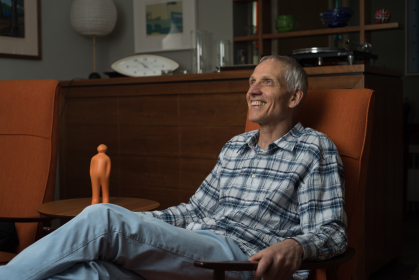
“Across the country, 50 million people flew on Thanksgiving. They weren't thinking and caring about the hospital workers and the many others who will suffer. It shows we are more focused on self-care and gratification than our common good and caring for those around us,” said Jerald Floersch, associate professor in the Rutgers School of Social Work.
Floersch and his colleague Jeffrey Longhofer, also an associate professor in the School of Social Work, started a new internet-based, social media program, On Caring |The Project, to describe what they’re calling, “the nine modes of caring.”
“We should all care. Not just in the caring professions like nursing, social work, medicine, physical therapy and so on, but in its broadest sense,” Floersch said. “How do we care about the planet? How do we care about ethics and justice? How about government, art, science, love, community?”
The academic duo produced nine episodes of podcasts, vodcasts, and a daily blog bout caring with scholars, practitioners, ethicists, artists, filmmakers, poets and writers about caring, why it’s the right thing to do and how to imagine a truly caring society. They examined how our lack of caring happened, how we can learn from it, what alternatives to our current welfare and benevolent states might be reimagined and how we might imagine modes of caring without walls, borders, military and intrusive forms of surveillance. In short, how do we move from caring for some to caring for all, from the welfare state to the caring state.
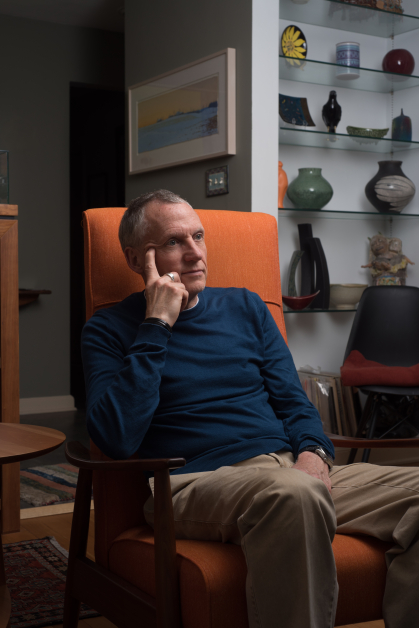
“One thing we've learned is just how significant internationally the caring discourse is,” said Longhofer, who believes that their daily blog, podcasts and vodcasts have reached a wide audience.
They also embrace the idea of engaged scholarship, which encourages ongoing dialogue with those most affected by social problems. Engaged scholarship is for them caring, and it is caring because it assumes that ideas and research should never be from the top down, that is, from the university to the community. COVID-19 has for them exposed many of the problems with approach to research and scholarship and dissemination of knowledge. You can listen to their most recent episode on their website.
“Even when the research is fast-tracked, as we’ve seen during the pandemic, that still is not fast enough to engage the audiences that we need to be fully engaged with,” Floersch said. “We wanted this to be a transdisciplinary project, so we decided to build an internet-based platform for dissemination and invite many into a conversation about caring.”
While tackling new technologies to produce podcasts and video has been a learning curve for both of them, they say it has been rewarding to meet new scholars and be able to use the information to make the learning experience more enjoyable for their students.
“It's helped us redirect our energy toward the future and not just staying down in lockdown and complain about all the things that are bad,” Floersch said.
Check out On Caring |The Project and listen to episodes at OnCaring.org
